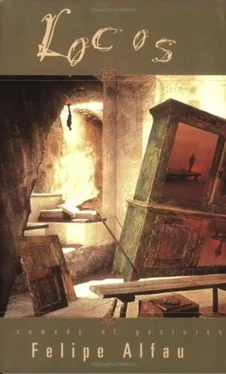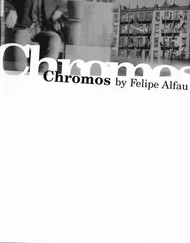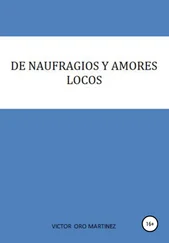When his wife became more used to his accusations about the legitimacy of the baby he took to mortifying her in another manner.
He would go on the balcony with the infant and then toss him up into space, right over the street, saying: “Jump little bastard, jump!” and kept this game up until the child began to cry. The poor mother watched, paralyzed with panic, not daring to say or do anything, lest he should let the baby fall.
When I heard this I asked:
“And why did she not take the baby and go away with it?”
And for once the man who knew it all seemed to hesitate:
“Well. I don’t know what kind of fascination that man exercised over her that she became his slave.”
For some reason Chinelato delighted in making his wife suffer. Once on the anniversary of their wedding, Chinelato acted very affably toward his wife; he had been exaggeratedly kind to her for the whole week and she feared, because these moods usually heralded one of his refined cruelties. On this particular anniversary he went beyond his usual limit of kindness toward her.
Chinelato was known to be very fond of roast pork; he often ate a whole suckling all by himself and on this occasion he dismissed all the servants and told his wife that he was going to roast a whole pig and serve personally the dinner so that they would not be disturbed and could have a second private honeymoon. The poor woman was overcome with all this. He gave her carte blanche, and the afternoon of that day she went shopping.
When she returned home she missed the baby but her husband told her not to worry, that he had a special surprise for her. Dinner was served and Madame Chinelato sat at the table not knowing what to think.
Chinelato entered wearing an apron and a cook’s cap, carrying a huge silver platter with a cover like a dome. He was in a very happy mood, taking insinuating dance steps, laughing and showing a row of wonderfully white teeth.
He set the platter before his wife. He sat down facing her and told her to open it.
When she uncovered it she grew livid as a corpse, her mouth gaping, her eyes protruding, and then very slowly she collapsed without uttering a single sound, still holding the cover in her hand, while Chinelato laughed long and loud at his own joke in the lonely house.”[9]
This terrible shock finished poor Madame Chinelato. She lost her reason completely. For three days she sat with her eyes fixed in space, then she would move a hand as if uncovering something and burst out into horrible screams. For three days and nights she was in that condition. She refused to eat and no one was able to feed her anything, and the last night, when Chinelato left his home, he saw in the street a group of boys who had built a bonfire.
The front of his house was illuminated with a red glow. He called to the boys to go away and then chased them down the street. Inside the house the insane woman was screaming and she died that night.
When I heard this weird incident, I could not help thinking that it was a bit melodramatic and overdone. I said:
“But that was a crime. What about the authorities? Didn’t they do something about it?”
And the man who knew all hesitated again:
“Well. ” he said.
The Butterfly Charmer
After his wife’s death Chinelato went on with his gay life. He married a woman he had met in his street and then proceeded to drink and gamble. His street, lacking in proper management, soon began to lose. When he was drunk he always insisted on paying for everything that had been consumed; he invited guests to everything and with all this he soon squandered his fortune.
Soon after that came the loss of his championship. The match was staged in Havana and his opponent was a white man still more of a giant and before whom even Chinelato looked rather small.
Some people say that Chinelato, due to the life he had led, was in poor condition for this match and had not trained at all. Others say, among them the man who knows all about him, that he sold himself for a large sum of money, that his opponent, though big, was a flabby man who could not compare with Chinelato in strength or in technique, that Chinelato played with him for a long time to give the public a good show and then lay on the floor of his own accord, pushed the hands of his opponent against his own shoulders and even winked at some of his friends in the audience.
The fact remains that after he lost his championship he had a lot of money and then he went to Spain, and in the company of his other white wife he toured the country triumphantly.
From that time dates, I believe, his assumption of the name of Olózaga. As Señor Olózaga, he owned a circus which played in several Spanish cities. In this circus he performed also, not as an athlete but as a butterfly trainer.
I remember seeing him when his circus was in San Sebastian. In the mornings he appeared on the beach clad in a rich robe. All his life he showed a marked preference for beautiful robes. Then, standing before the water, he would let the robe fall into the respectful hands of a perennially awestricken valet and display his magnificent physique to everybody.
The women admired him and swarmed about him like butterflies, and he permitted himself a number of liberties with them, always smiling and showing a row of white teeth: liberties that would never have been granted to the rickety gentlemen with monocles, who looked on disgustedly from a distance.
After that he took his morning swim and entertained himself playing with the children, holding them with one hand and tossing them into the water as if they were balls. On these occasions he never struck me as the man who has been described, but rather as a kind gentleman, fond of children.
I also remember seeing his act at his circus. I was very curious to see it. According to people, he had trained the butterflies to such a degree that he made them do anything he pleased. He led them with a fan and they flew all over the place or stood close to him and did a multitude of clever things. The most sensational part of the act, however, was at the end, when his fan quivered slightly but rapidly and all the butterflies stood above it in a semicircle, fluttering their wings and spelled his name. He was supposed to be the only man who could perform this act. Some people said that the butterflies were not real.
I was in the front row the night I saw him perform. He came out in a magnificent mandarin coat, holding a great fan in his hand. In the center of the stage there was a table with a box and a small xylophone.
The orchestra began to play a waltz.
Chinelato opened his fan with a magnificent gesture, closed it and opened it again with graceful and rhythmic motions in time with the music. Then he opened the box and taking a small padded hammer struck upon a key of the xylophone, which harmonized with the orchestra: a butterfly sprang out of the box and landed right on the edge of his fan. He struck another key and another butterfly came out in the same manner and alighted beside her sister. He repeated this seven times, going through the whole scale always in harmony with the music, and then, with one motion he ran upwards through the keys of the xylophone and a swarm of butterflies sprang up from the box and filled the stage, flying all over the place. Then he ran downwards through all the keys and the music ceased, and all the butterflies hovered about him, alighted upon the fan, his arms and shoulders. He was covered with butterflies.
Then the waltz began again and slowly he began to work his fan in time with the waltz. It flapped like a wing. It was a beautiful performance to watch. He gathered the butterflies in a big bunch and then scattered them in groups, in pairs, in trios. It was marvelous, the docility with which they followed the enchanted fan. Like a battalion he led them in columns of four abreast or in long double columns and made them go through all the motions of a well-trained army. They went to and fro rhythmically following the fan as if it were a huge butterfly, sometimes undulating slowly as something that is falling asleep and then flapping furiously in a sudden awakening. They circled about him, then descended almost to the stage floor and, as the fan rose, they went up high into the air.
Читать дальше












